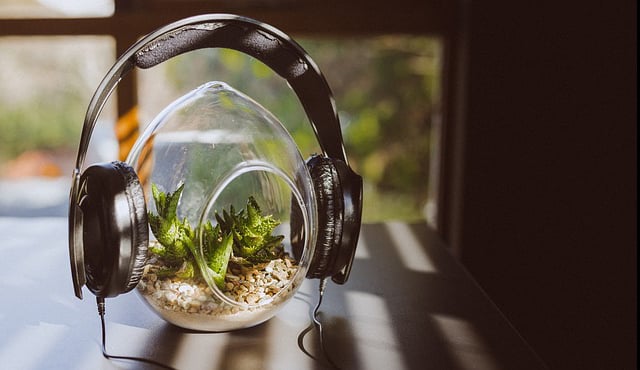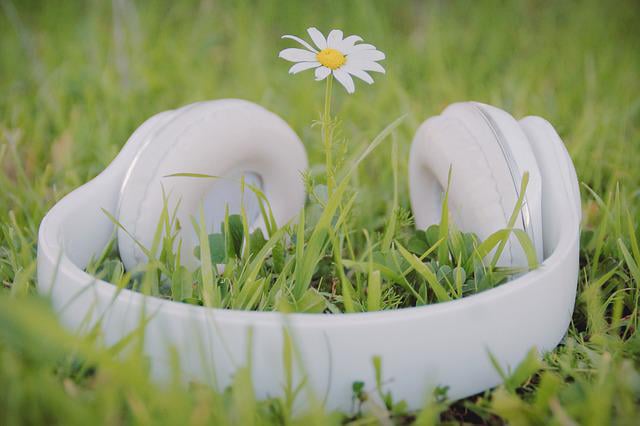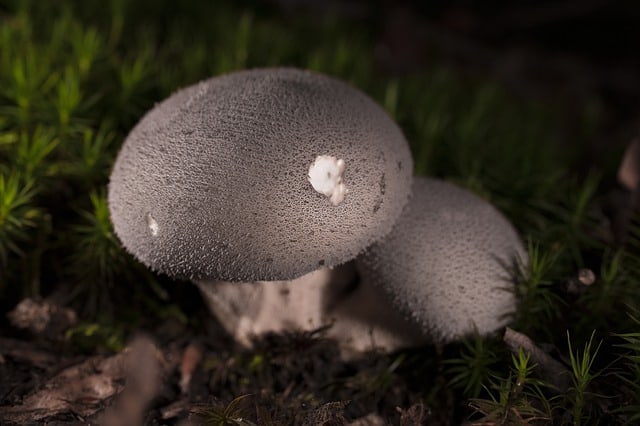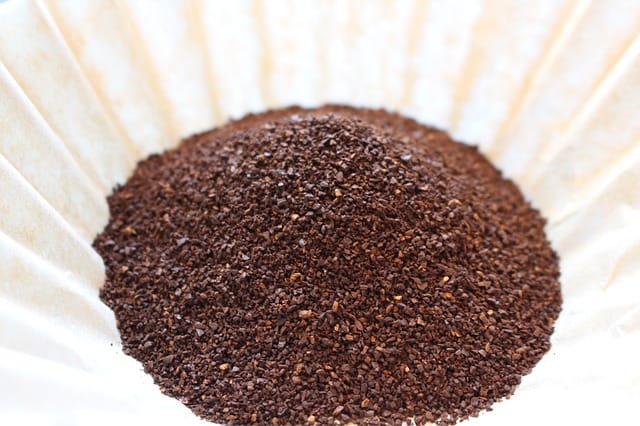Do plants react to music? This is a question that has been asked by many people over the years. Some say that they do, while others say that they don’t.
In this blog post, we will explore both sides of the argument and try to come to a conclusion based on the evidence.
We will also look at some of the scientific research that has been done on this topic.
So, does music effect plants? Let’s find out!
Note: If you click some of the links or pictures in this article we may earn a small commission at no additional cost to you.

Do Plants React to Music?
Do plants react to music? The answer appears to be yes. Studies have shown that plants can recognize the sound of insects chewing leaves and in turn, they give off chemicals to protect themselves.
A 2017 study found plants can hear the sound of water and move towards it over time (source).
Plants that listened to pleasant music grew better than those who were kept in silence in the control group, according to a 2015 study (source).
There have been several books written on the subjects such as The Sound of Music and Plants by Dorothy Rallack and the Secret Life of Plants by Peter Tompkins and Christopher Bird.

The Sound of Music and Plants Synopsis
In The Sound of Music and Plants, Dorothy Retallack conducts experiments on how plants react to different types of music.
In the first study, she exposed plants to single notes for varying amounts of time per day.
The plants that were exposed continuously died in 14 days. However, the plants that were only exposed to the single notes for 3 hours intermittently did well.
In the second study, Retallack compared how plants react to rock music versus soothing music.
The plants in the room with soothing music were green and leaned towards the player. In contrast, the plants in the rock music room were overly tall and drooping.
Most of the plants in the rock room died within 16 days while the soothing music plants remained vibrant.
These studies suggest that plants respond negatively to loud, continuous noise but can thrive when exposed to softer sounds intermittently.
The Sound of Music and Plants Criticisms
Some people have criticized the book The Sound of Music and Plants by Dorothy Rallack.
They say that her experiment was not scientific because she did not have dedicated control groups.
They also say that she only tested a few types of music and didn’t dive deeper into the individual sounds from the music that could have created the effects.

 Synopsis
Synopsis
The Secret Life of Plants is a 1973 book by Peter Tompkins and Christopher Bird. The book describes the experiments of German botanist Cleve Backster, who used plant polygraphs (lie detectors) to record their response to various stimuli.
Based on his findings, Backster claimed that plant consciousness could be proven and that plants were capable of communicating with each other. The book was very controversial at the time and remains a controversial topic today.
Many scientists have criticized Backster’s methods and conclusions, but the idea of plant consciousness continues to fascinate many people.
In recent years, there has been a renewed interest in the topic, and scientists are beginning to explore the possibility that plants may indeed have some form of awareness.
Criticisms of the Secret Life of Plants
While the Secret Life of Plants received a great deal of attention when it was first published, it has since been the subject of much criticism.
One of the main problems with the book is that the studies it is based on are hard to replicable. In other words, they cannot be repeated by other scientists to verify the findings.
This is a major issue, as it means that there is no way to verify many of the claims made in the book.
Additionally, there have been very few independent studies conducted on the topic of plant consciousness. As a result, the claims made in The Secret Life of Plants remain largely unproven.
What Types of Music Effect Plants?
While there is still much we don’t know about how plants react to music, there have been a few studies that suggest certain types of music may be more beneficial than others.
One study found that classical music had a positive effect on the growth of indoor plants, while rock music had a negative effect (source).
Another study found that plants exposed to the sound of running water showed increased growth, while plants exposed to silence or white noise did not.
It’s important to note that these studies are far from conclusive, and more research is needed to determine definitively how different types of music affect plant growth.
However, they do provide some interesting insights into the potential benefits of using music to help your plants grow.
Does Music Make Plants Grow Faster?
There is no clear answer to this question. While some studies have shown that music can have a positive effect on plant growth, other studies have been unable to replicate these results.
Dr. T. C. Singh’s discovery that balsam plants grow 20% taller and 72% bigger overall, when exposed to classical music, is one of the more unusual findings in the world of botany.
He also found that plants responded the best to the sound of violins.
While the precise mechanism behind this effect is not fully understood, it is hypothesized that the vibrations created by the music help to stimulate plant growth.
Can Plants Hear?
This is a difficult question to answer, as we don’t know what plant consciousness looks like.
However, based on the studies that have been conducted, it seems likely that plants are at least able to perceive sound waves in some way.
Do Plants Prefer Silence?
There is no clear answer to this question either. While some plants seem to respond positively to music, others seem to prefer silence.
It’s possible that different plant species have different preferences, or that the type of music you play makes a difference.
In any case, more research is needed to determine definitively how plants react to different types of noise.
Should You Play Music for Your Plants?
As any music lover knows, tunes can have a profound effect on our mood and well-being. But what about plants? Could music have an impact on their growth and health? Surprisingly, the answer may be yes.
Numerous studies have shown that plants respond to music in a variety of ways. So if you’re looking for a way to give your plants a boost, playing some music might just do the trick.
Just stick with soothing tunes and keep it to less than 3 hours a day.
Should You Stop Playing Music at Home Around Your Plants?
It’s hard to say definitively whether or not you should stop playing music around your plants. While some plants seem to respond positively to music, others may prefer silence.
It’s possible that different plant species have different preferences, or that the type of music you play makes a difference.
In any case, more research is needed but there’s no need to wait for a definitive answer.
Simply observe how your plants respond to the music you play and adjust accordingly. You may be surprised at how much your plants enjoy a little musical accompaniment.
Conclusion
There is still much we don’t know about how plants react to music, but there is some evidence to suggest that it can have a positive effect on plant growth. If you’re looking for a way to give your plants a boost, playing some music might just do the trick. Just stick with soothing tunes and keep it to less than 3 hours a day.



